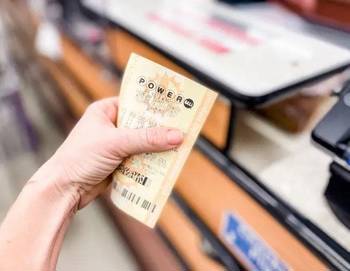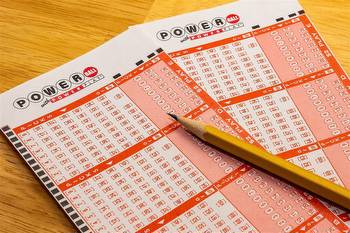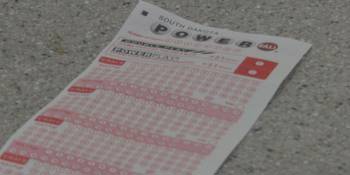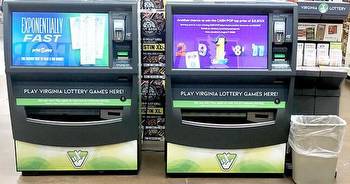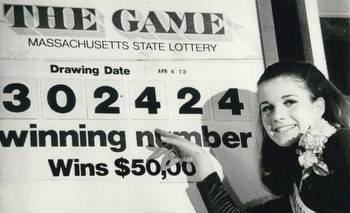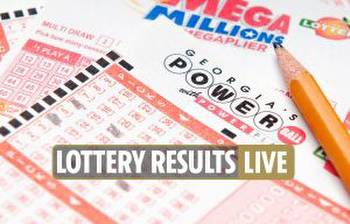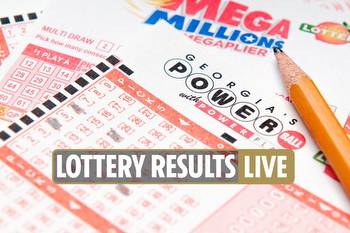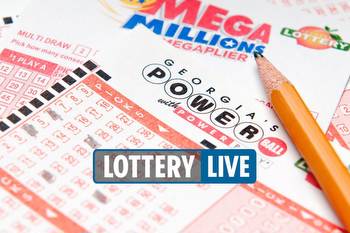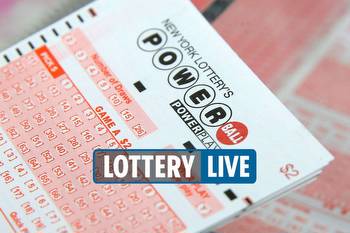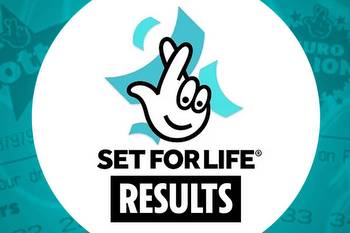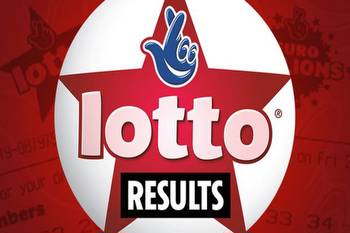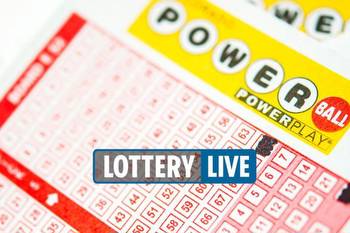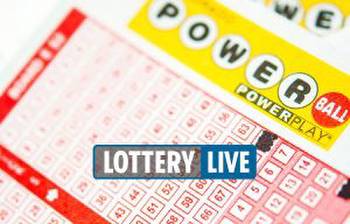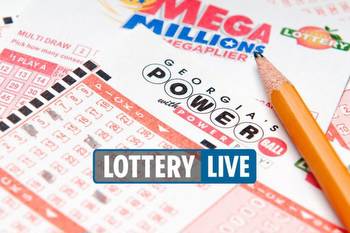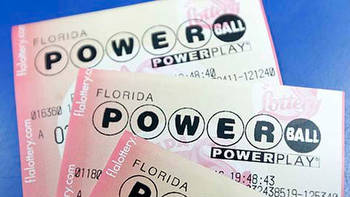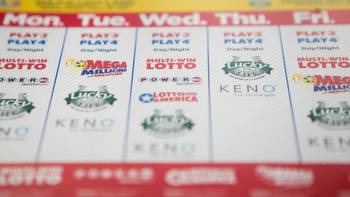Top 10 myths debunked about the Pennsylvania Lottery
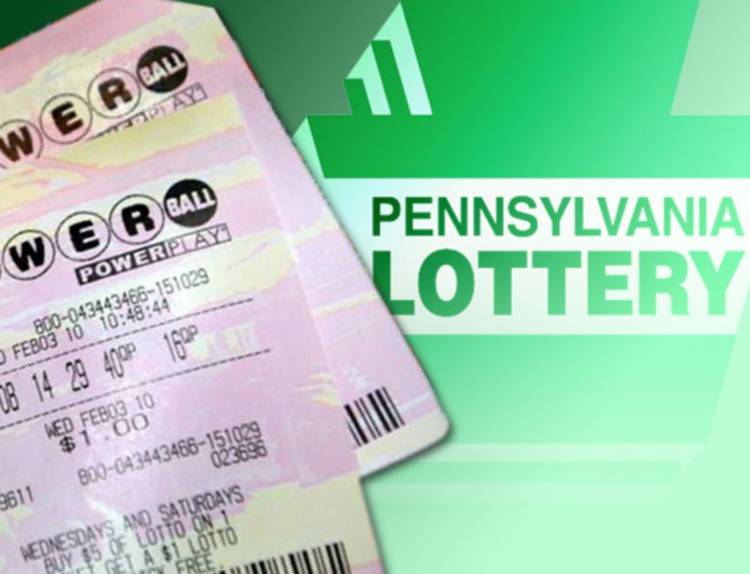
EYEWITNESS NEWS (WBRE/WYOU) — Some Pennsylvania Lottery winners say they are blessed with good luck. But, others will say, it’s all about chance. So, what is myth and what is fact when it comes to the PA Lottery?
Eyewitness News is running down the Top 10 myths and misperceptions about the PA Lottery according to the North American Association of State and Provincial Lotteries (NASPL).
Myth Number 1: The Lottery is a form of being taxed.
According to the lottery, taxes are defined as mandatory payments made to support the government. Residents don’t have a choice in paying taxes, and could even go to jail for not paying them. However, playing the lottery is completely up to you. Whether you’re someone who plays the lottery on a regular basis or just buys a ticket here and there, that money used to buy the tickets goes toward education and other programs supported by the state.
So, the PA lottery is essentially just a game that benefits the state and those living in it.
Myth Number 2: Lottery games are aimed at the poor and bought by those with low income.
Lottery studies have shown that all types of people enjoy playing and in 2021, players across the nation bought over $106 billion in traditional lottery tickets. The lottery says they aim games toward everyone. Like other businesses, they say they want as many people as possible to buy their products.
According to a national study by Vision Critical, 44 percent of lottery players have an income of $55,000 or more and 77 percent have incomes of $25,000 or more.
The lottery says critics that want to prove otherwise rely on “zip code studies.” This is when someone looks at the total number of lottery sales within a certain zip code, assumes all within the zip code make the same amount of money, and refuses to play the lottery anywhere else. However, people don’t always buy lottery tickets in the area where they live. Players buy tickets on the way to and from work or while shopping or running errands, or even at the airport. All purchases “zip code studies” fail to take into account, which is what makes them unreliable, the study noted.
Myth Number 3: The lottery doesn’t benefit anyone unless they win.
Each state decides how to spend its lottery money which usually goes to causes like education, economic development, veterans, tourism, and care for the elderly. Without lotteries, states say they would have to pay for these programs with taxes. On average, for every $1 spent on lottery tickets, about 24 cents goes back to the lottery and more than that, about 65 cents of every $1, is given back to the players in prizes.
Myth Number 4: All of the money spent on the lottery the state keeps entirely.
On average, about 95 percent of the money made from U.S. lottery games goes back into the economy through prizes, public beneficiaries, and retailer commissions. While different areas across the nation may vary, around 65 percent goes to players in prizes, 24 percent goes to public beneficiaries, and 6 percent to retailers.
The rest of the money supports lottery operations, paying for different programs, and is dedicated to a variety of causes, including education, the environment, health care, capital construction projects, programs for seniors, cultural activities, and more.
According to NASPL, U.S. lotteries generated more than $28 billion for winners in 2021 alone, including additional money coming from lottery-operated casino-style games in some areas.
Myth Number 5: The Lottery causes more people to gamble compulsively.
Lottery officials say there’s little evidence linking lotteries and gambling addictions. Helplines for problem gambling run throughout North America and report very few callers who say lotteries are the source of their problem. A University of Minnesota study of 944 gamblers in treatment found that less than 1 percent stated the lottery is their preferred form of gambling.
The National Survey on Gambling Behavior conducted by the University of Chicago’s National Opinion Research Center stated “It does not appear that the availability of a lottery has an impact on (problem gambling) prevalence rates.” A study of 2,274 U.S. adolescents found that “The forms of gambling that were most associated with gambling problems were card games, casino gambling, and betting on games of skill such as basketball, pool, or golf.”
Officials state there is also little evidence that compulsive gambling is growing. A 2014 study from the Research Institute on Addictions at the State University of New York at Buffalo compared national surveys taken in 1999 and 2013 and concluded that “rates of pathological and problem gambling remained stable even though there was a general expansion of legal gambling and gambling laws in the U.S. during this time.” A study prepared for the Ontario Ministry of Health and Long Term Care reviewed 202 problem gambling surveys from around the world and concluded “There has been a general worldwide downward trend in both gambling and problem gambling rates beginning in the late 1990s for North America.”
Myth Number 6: Retailers lose a considerable amount of money from online lottery sales.
Although online gambling is relatively new to the U.S., it is a staple in other countries, where they have increased public awareness and interest in lottery games as well as attracting new customers. Offering games through digital channels can create new sales opportunities for retailers as well as lotteries. For example, “online play gift cards” are available only at retailers or reward online players with free ticket coupons that must be redeemed at the store.
Providing an online option to players is a proven success in other countries and shows promise in the United States to expand the industry’s customer base by attracting new and younger players to all lottery games. The public consistently turns to the Internet for personal, business, and entertainment uses. If lotteries adapt to the use of technology it can put them in a position to make a lot of money in the future.
Myth Number 7: Online lottery sales cause compulsive and underage gambling.
Online lottery sales provide a more responsible platform due to an element that’s not available at retail stores. Online platforms can provide daily, weekly, and monthly deposit limits that address how much a player can put in their account for playing.
There’s no current way to track how much an individual spends at a retailer on any given day. But, through the internet, lotteries can track spending and can throttle down how much a person spends, if need be. This is in addition to other activities laid out in the National Council on Problem Gambling’s Internet Gambling Standards that include self-exclusion, time outs, and informed decision-making.
Myth Number 8: The lottery drawings are rigged (not drawn fairly).
Official lottery drawings are carefully watched and closely scrutinized. Lotteries are a significant source of money for state budgets as they make millions of dollars to support important programs and services. Lottery games are also a popular form of entertainment that offers players the potential to win money.
Tedious security measures and drawing procedures are standard practices across “the industry” and they are needed for the success of any lottery. All state lotteries are subject to internal and independent audits to verify that their equipment and processes provide random results. Equipment used for drawings is regularly tested and procedures are recorded on video with witnesses. In addition, the machines are stored securely, often in a locked vault, and can only be accessed by a limited number of authorized personnel.
While methods vary for each state, all lotteries have multiple checks and balances to ensure the accuracy, honesty, and transparency of every drawing that is conducted. These measures are important to maintaining a winner’s identity and making sure the public can trust the integrity of the lottery in each and every drawing.
Myth Number 9: “Big money” lottery winners are worse off after the prize money.
History shows that the majority of lottery winners make positive long-term decisions with their money to ensure a comfortable life while still dealing with the real-world goals many people share.
For example, investing for retirement, planning for children’s or grandchildren’s education, buying or remodeling their homes, contributing to charities, and investing in their communities. Lottery jackpots are no different than any other large source of income that a person may receive, from an inheritance to the profits from the sale of a business.
Careful planning is required to ensure that the money is handled appropriately. Some lottery winners through the years have made poor choices with the money they received and maybe it’s just human nature that causes people to remember those examples rather than positive ones. But, studies show that it takes numerous positive impressions to balance out a single negative one.
Myth Number 10: State governments benefit from the lottery, so they can’t be trusted toregulate them.
States make their own tax policies and many other decisions regarding their citizens. So why shouldn’t states be trusted to regulate their own lottery organizations if there is nothing to hide?
In fact, lottery files are public records and open for anyone to look into. Lottery board meetings and legislative hearings also are open to the public and state lottery proceedings are much more accessible than the federal regulatory agencies.
Therefore, states can’t hide any lottery information, and if you think they are, you can check it out for yourself.
Bonus-Myth Number 11: You’ve received a phone call claiming you won the lottery, you just have to pay a fee to collect your prize money.
This is a scam more than a myth but it deserves to be mentioned. Scams run by people claiming to represent the lottery are just one of the ways criminals today attempt to separate you from your hard-earned money.
The scams almost always involve an offer of big winnings in return for any of your personal information and more than a bit of your cash. Maybe you received an email, letter, or phone call saying, “You’ve won the lottery!” And for a split second, you question if it’s real. The first thing you should ask yourself is: Did I buy a ticket? Because the only way to win a lottery prize is if you’ve purchased a ticket or entered a drawing.
Lottery officials say to never believe someone who claims they can guarantee you a prize. Legitimate lotteries do not guarantee you will win and do not require people to join prize pools to play.
Never pay processing fees, insurance, or commissions to claim a lottery prize. Legitimate lotteries do not require winners to pay anything upfront to get their prize.
You can protect yourself by never giving out personal information to strangers or sending money to someone who says you’ve won a prize. Remember, there is no way you can win if you didn’t play.
for information on online games, winners, and coupons or to watch the latest drawing or view winning numbers.








